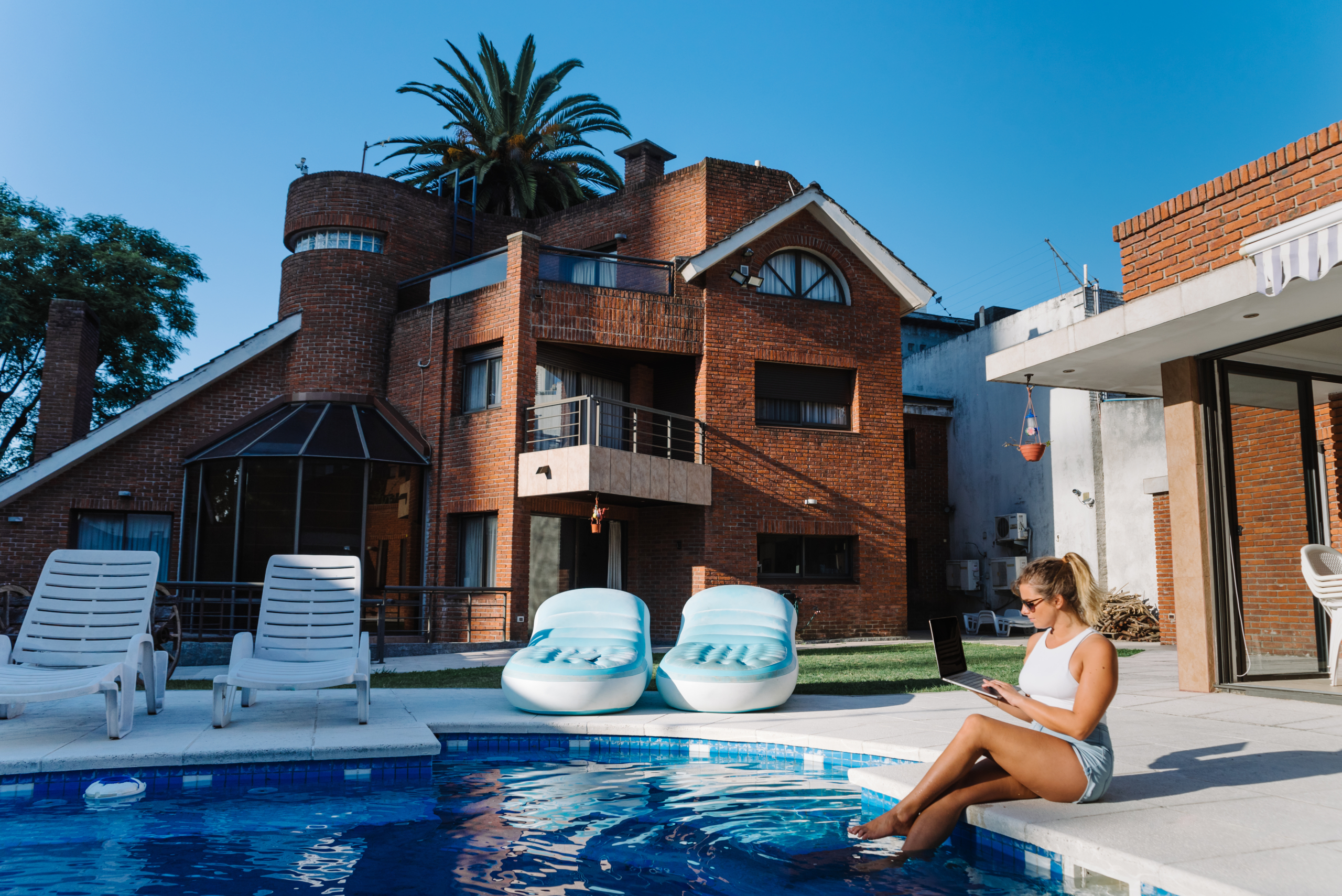In 2025, the real estate landscape continues to evolve, driven by post-pandemic travel recovery, remote work trends, and a growing appetite for experiential living. As more high-net-worth individuals seek out unique escapes and passive income opportunities, luxury vacation homes have emerged as a popular investment avenue. But the big question remains: Are luxury vacation homes a good investment in 2025?
Why 2025 Is a Pivotal Year for Luxury Vacation Homes
Several factors make 2025 an especially interesting year for investing in luxury vacation properties:
1. Booming Travel and Hospitality Sector
Global travel is back in full swing. The United Nations World Tourism Organization (UNWTO) reports a strong rebound in international travel, with luxury travelers spending more than ever on exclusive accommodations. This surge in demand fuels the short-term rental market, making high-end vacation homes attractive for income generation.
2. Work-from-Anywhere Lifestyle
The rise of remote work has normalized the idea of living — and working — from picturesque locations. Investors are purchasing vacation homes not only for their own enjoyment but also as income-producing assets during off-peak personal use periods.
3. Inflation Hedge and Asset Diversification
Luxury vacation homes offer tangible value and act as a hedge against inflation. As traditional investment markets fluctuate, real estate — particularly in premium destinations — remains a relatively stable asset class with long-term appreciation potential.
Benefits of Investing in Luxury Vacation Homes in 2025
1. High Rental Yields
With platforms like Airbnb Luxe and Vrbo Premium driving demand, luxury vacation rentals can command nightly rates several times higher than standard properties. Prime locations such as Aspen, Maui, or the French Riviera can generate significant monthly revenue during peak seasons.
2. Personal Use and Lifestyle Enhancement
Unlike stocks or mutual funds, a luxury vacation home provides both financial and lifestyle value. Owners can enjoy the property themselves, often offsetting some or all of the ownership costs through rental income.
3. Tax Advantages
Depending on your country’s laws, luxury vacation homes may offer tax deductions for mortgage interest, property depreciation, maintenance expenses, and more — particularly if the property is rented out for a significant portion of the year.
4. Appreciation in High-Demand Markets
Well-located luxury homes tend to appreciate over time. Beachfront, mountain-view, and urban luxury locations with limited inventory see steady value increases, especially when demand outpaces supply.
Risks and Challenges to Consider
Despite the advantages, investing in luxury vacation homes in 2025 is not without its challenges.
1. High Entry Costs
Luxury homes often come with multimillion-dollar price tags, making the barrier to entry steep. Down payments, closing costs, furnishings, and renovations can require substantial upfront capital.
2. Market Volatility
Luxury markets can be more susceptible to economic downturns. During recessions or global crises, discretionary travel and spending tend to decrease, affecting short-term rental income.
3. Seasonal Occupancy
Most luxury vacation destinations have peak seasons, which means rental income can be highly seasonal. Planning for off-season vacancies is essential to maintain positive cash flow.
4. Management Complexity
Managing a luxury vacation home is more involved than owning a long-term rental. High-end guests expect premium service and flawless maintenance. Hiring a professional property management company may be necessary but will reduce net income.
Where to Invest in Luxury Vacation Homes in 2025
Some locations stand out in 2025 for their strong luxury rental markets, appreciation potential, and demand from global travelers:
-
Aspen, Colorado – A favorite for winter sports and luxury retreats.
-
Maui, Hawaii – Year-round appeal with strong rental returns.
-
Tulum, Mexico – Booming tourism and relatively low property taxes.
-
Lake Como, Italy – Historic luxury with consistent appreciation.
-
Dubai, UAE – A tax-friendly investment environment with growing tourism.
Other up-and-coming areas include the Algarve in Portugal, Cape Town in South Africa, and parts of Costa Rica, offering a balance of affordability and growth potential.
Key Considerations Before Investing
To determine whether luxury vacation homes are a good investment in 2025, ask yourself:
-
What is my investment goal? (Cash flow vs. appreciation vs. personal use)
-
Is the location recession-resistant?
-
How will I manage the property?
-
What are the local regulations for short-term rentals?
-
Can I sustain the investment during downturns or vacancies?
Tips for a Successful Luxury Vacation Home Investment
-
Research the Local Market Thoroughly: Understand seasonal trends, rental demand, and tourism projections.
-
Work With Local Experts: Real estate agents, tax advisors, and property managers can offer critical insights.
-
Consider Financing Options: Mortgages for second homes typically require higher credit scores and down payments.
-
Invest in Quality Design and Amenities: High-end guests expect premium features — hot tubs, pools, smart tech, and curated interiors.
-
Ensure Proper Insurance Coverage: Luxury homes in vacation zones often face risks like hurricanes, floods, or wildfires.
Conclusion: Are Luxury Vacation Homes a Good Investment in 2025?
Yes — but with strategic planning and realistic expectations. Luxury vacation homes can offer excellent returns through rental income and property appreciation while providing personal enjoyment. However, investors must be prepared for higher costs, greater complexity, and economic variables.
For high-net-worth individuals or those with a strong financial foundation, investing in luxury vacation homes in 2025 can be a smart addition to a diversified portfolio. Success depends on choosing the right location, understanding the market, and managing the property effectively.
As travel, remote work, and lifestyle investments continue to merge, luxury vacation homes will likely remain a compelling real estate opportunity well beyond 2025.



